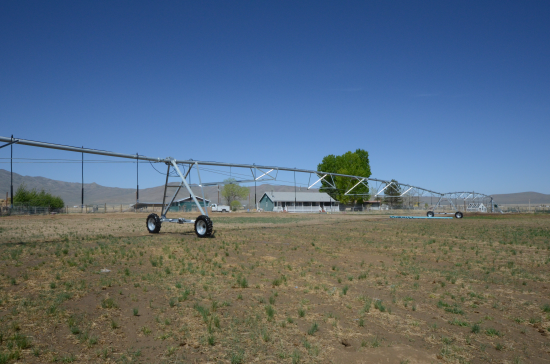Nevada Land for Sale – Doing Your Due Diligence

Buying land in Nevada can be an exciting and rewarding investment, whether you’re dreaming of a ranch, a desert retreat, a farm, or simply holding property as a long-term asset. But as wide-open and full of opportunity as Nevada is, it’s also a state with unique challenges. Before you sign on the dotted line, it’s essential to perform due diligence—your homework on the land you’re buying.
Here are key areas every Nevada land buyer should investigate:
1. Mineral Rights
In Nevada, one of the most mineral-rich states in the U.S., mineral rights and surface rights can be separate. That means you might own the surface of the land, but someone else could own (and legally access) what’s beneath it—gold, silver, geothermal energy, oil, or gravel.
Always verify whether mineral rights are included in your purchase.
If they are not, understand what that could mean for you down the road—such as potential exploration or extraction activities.
A title search or conversation with your broker can clarify this early on.
2. Water Rights
Water is Nevada’s most valuable resource, and water rights are often treated as an asset separate from the land itself. Owning land doesn’t necessarily mean you have the right to drill a well, irrigate crops, or graze cattle.
Confirm if water rights are deeded to the property, leased, or if none exist.
Check with the Nevada Division of Water Resources for details on permits, existing wells, or applications in progress.
Be cautious of land being marketed as “ideal for farming” without documented, transferable water rights.
3. Flood Zones and Flash Flood Risk
Nevada’s desert landscape can surprise newcomers with how quickly dry washes turn into raging torrents during monsoon storms. Flash floods are common, especially in valleys and low-lying areas.
Review FEMA flood maps and county floodplain designations.
Walk the land—look for evidence of old washes, gullies, or debris lines that indicate flood activity.
Building in a flood-prone area may require special permits, insurance, or elevated construction.
4. Access and Easements
Just because you can see land doesn’t mean you can legally get to it. Many Nevada parcels are landlocked, requiring easements across private or public property.
Confirm legal access through recorded easements, not just “two-track roads” across neighboring land.
Check county records for any restrictions, rights-of-way, or access agreements.
5. Zoning and Land Use Restrictions
Counties in Nevada vary widely in how they regulate land use. What works in Elko County may not be permitted in Humboldt or Nye.
Verify the zoning designation and what uses are allowed—residential, agricultural, mining, recreational, or industrial.
Don’t assume that “out in the country” means “no rules.” Permits, septic requirements, and building codes still apply.
6. Environmental & Historical Considerations
Nevada’s lands are rich in history and wildlife. Some parcels may fall under environmental restrictions or cultural protections.
Endangered species habitats, archaeological sites, or old mine shafts could impact development plans.
If you’re buying larger acreage, consider ordering an environmental site assessment (ESA).
Final Thoughts
Nevada land is full of promise—but also full of nuance. By taking the time to investigate mineral rights, water rights, flood risks, access, zoning, and environmental factors, you protect yourself from expensive surprises later.
Partner with a knowledgeable Nevada land broker who understands the landscape (literally and legally). At Armani Land Company, we’ve been helping buyers navigate these issues for years. With the right due diligence, your Nevada land purchase can be everything you’re hoping for—whether that’s a working ranch, a homestead, or an investment for the future.